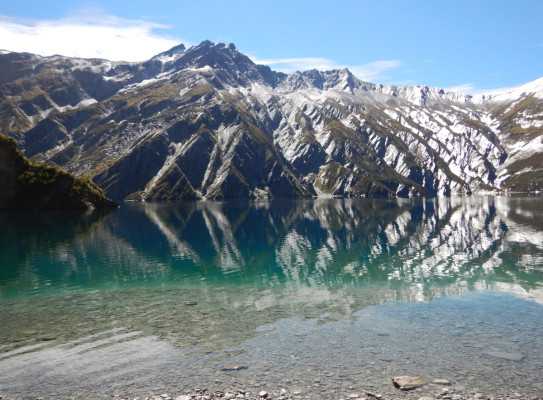
Marcus Vandergoes Paleoecologist: Climate and Environmental Change
I am a paleoecologist whose research focuses on reconstructing historic and prehistoric environmental change through the analysis of lake and peat sediment cores. This work allows insight into how ecosystems and environments have responded to climate change, landscape evolution and human impact. I am the joint programme leader for the MBIE-funded project ‘Our Lakes Health; past, present and which aims to characterise the health of our lakes by uncovering their environmental history from sediment cores taken from 380 New Zealand lakes. The project uses a combination of traditional environmental reconstruction techniques and more recent methods such as environmental DNA and high resolution core scanning to characterise current lake health and explore rates and causes of water quality change over the last ~ 1000 years in New Zealand. I also lead research that reconstructs and assess the influence of past climate changes on New Zealand. This research has focussed on developing high resolution (annual-decadal resolved) paleoclimate records from New Zealand lake sediment cores to investigate changes in hydrologic and climate regimes related to Southern Hemisphere atmospheric circulation patterns My research interests include • reconstructing high-resolution records of climate and environmental change for New Zealand to provide a context for understanding current and future change. • defining pre-human ecological baseline conditions from lakes to guide restoration and conservation. • understanding the role of the Antarctic and Southern Ocean in driving past climate. • developing quantitative methods in environmental and paleoclimate reconstruction including temperature transfer functions from chironomids and bacterial lipids to reconstruct past temperature and measures of lake productivity using hyperspectral core scanning. My field work and research experience include working in Antarctica, New Zealand, Patagonia, USA and Tasmania.
View Bio Contact Me